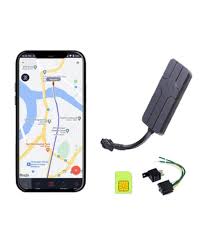GPS Trackers: The Modern Solution for Security and Peace of Mind

A GPS tracker is a device that uses the Global Positioning System (GPS) to determine and track its location in real-time or over a set period. It typically includes a GPS receiver and a communication module (such as GSM, Wi-Fi, or satellite), which allows the data to be sent to a server or a smartphone app for monitoring. Types of GPS Trackers Personal GPS Trackers : Used for tracking individuals, such as children, elderly family members, or travelers. These devices are often small, portable, and may include features like emergency buttons or two-way communication. Vehicle GPS Trackers : Designed for cars, trucks, or fleets, these trackers provide real-time location data to monitor vehicles, prevent theft, and improve logistics management. Asset GPS Trackers : Used to track valuable equipment or goods, often in industries like logistics or construction. These are typically designed to be robust and durable, with extended battery life. Pet GPS Trackers : Small, collar-mounted devi...



Comments
Post a Comment